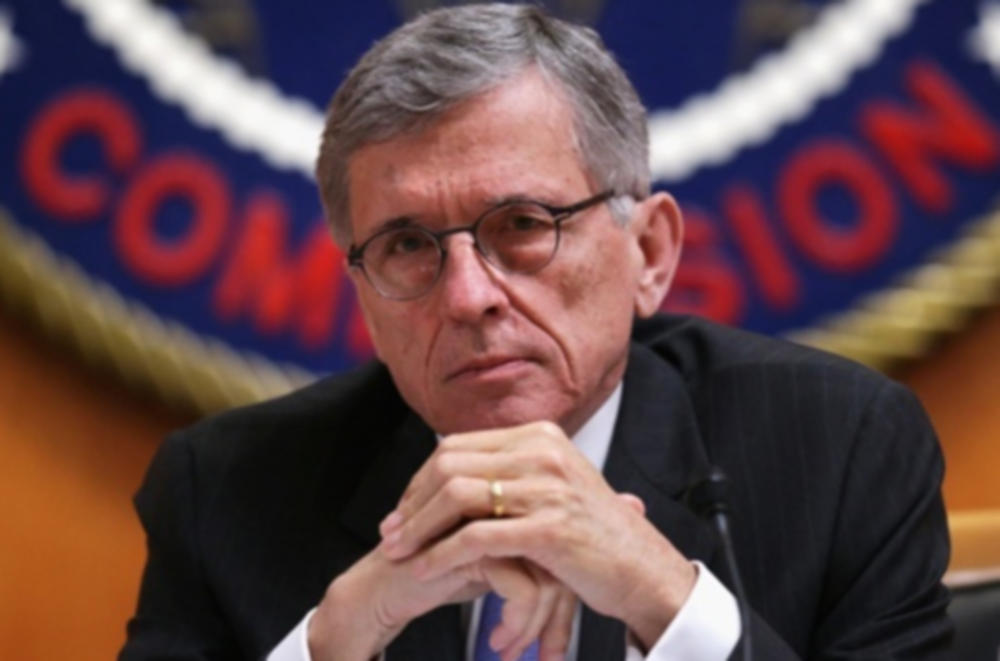FCC Chairman Tom Wheeler
The Federal Communications Commission voted today to pass wide-ranging new rules that would regulate broadband Internet access in the manner of a public utility, making it unlawful for service providers to sell “fast lanes” to Web businesses or to purposefully slow down transmissions. The 3-2 vote split along party lines, with the two Republican commissioners—Ajit Pai and Michael O’Rielly—voting against the regulations that fall closely in step with those employed in the European Union.
“I am incredibly proud of the process the Commission has run in developing today’s historic open Internet protections. I say that not just as the head of this agency, but as a U.S. citizen,” FCC Chairman Tom Wheeler said in a statement. “There are three simple keys to our broadband future. Broadband networks must be fast. Broadband networks must be fair. Broadband networks must be open.”
Wheeler was referring to what are called the three “Bright Line” rules for broadband providers in the package passed today:
No Blocking: They may not block access to legal content, applications, services, or non-harmful devices.
No Throttling: They may not impair or degrade lawful Internet traffic on the basis of content, applications, services, or non-harmful devices.
No Paid Prioritization: They may not favor some lawful Internet traffic over other lawful traffic in exchange for consideration of any kind—in other words, no “fast lanes.” This rule also bans ISPs from prioritizing content and services of their affiliates.
Critics of the new rules say the struggle over net neutrality is far from over and promise that it will be enjoined in the halls of Congress and the courts. One of those was Commissioner Pai, whose dissenting statement bemoaned the Internet’s future being decided by five unelected officials.
“What we do will imperil or preserve Internet freedom. It will brighten or hamper the future of innovation both within networks and at their edge. It will determine whether control of the Internet will reside with the U.S. government or the private sector,” Pai wrote. “I am therefore disappointed that today, rather than turning to Congress, we have chosen to take matters into our own hands.”
Republican members of Congress, who now control both Houses, seem intent to weigh in on the new rules. Sen. John Thune (R-SD), chairman of the Commerce, Science, and Transportation Committee, issued a statement challenging the FCC’s action shortly after it was consummated.
“Despite the Federal Communication Commission’s partisan action to approve a 317-page power grab over the Internet, the fight to keep the Internet unburdened from regulatory overreach is far from over,” Thune said. “As parties line up to challenge this action in court, it will soon be time for Congressional Democrats to review the situation and decide if they are prepared to join a bipartisan effort that brings real certainty to American consumers and provides the necessary protections to the Internet.”
Not likely to join that effort are a group of 11 Democratic senators led by Vermont’s Patrick Leahy and New York’s Chuck Shumer, who issued their own statement supporting the FCC’s initiative. “The Commission’s vote is a decisive step to ensure the Internet remains an open platform for consumers and a level playing field for all. Strong net neutrality protections will ensure the Internet remains a dynamic engine of economic growth, democracy, and free speech for years to come,” they said.
Optimistic about, but not totally embracing, the FCC’s rules was The Internet Association, whose membership includes Amazon, Google, LinkedIn, Netflix, and Salesforce.com. Its statement called the Commission’s move a “welcome step in our effort to create strong, enforceable net neutrality rules” and added that it “looks forward to seeing the full text of the order.”
Rep. Jason Chaffetz, who yesterday excoriated Wheeler for refusing to testify about the rules at a hearing of his Oversight and Government Reform Committee, was of a similar mind. He floated a brief request on his Twitter feed today: “Hey FCC, now that you’ve passed this rule, can we read it? DM me.”








